St. Anselm Institute - Past Public Lectures
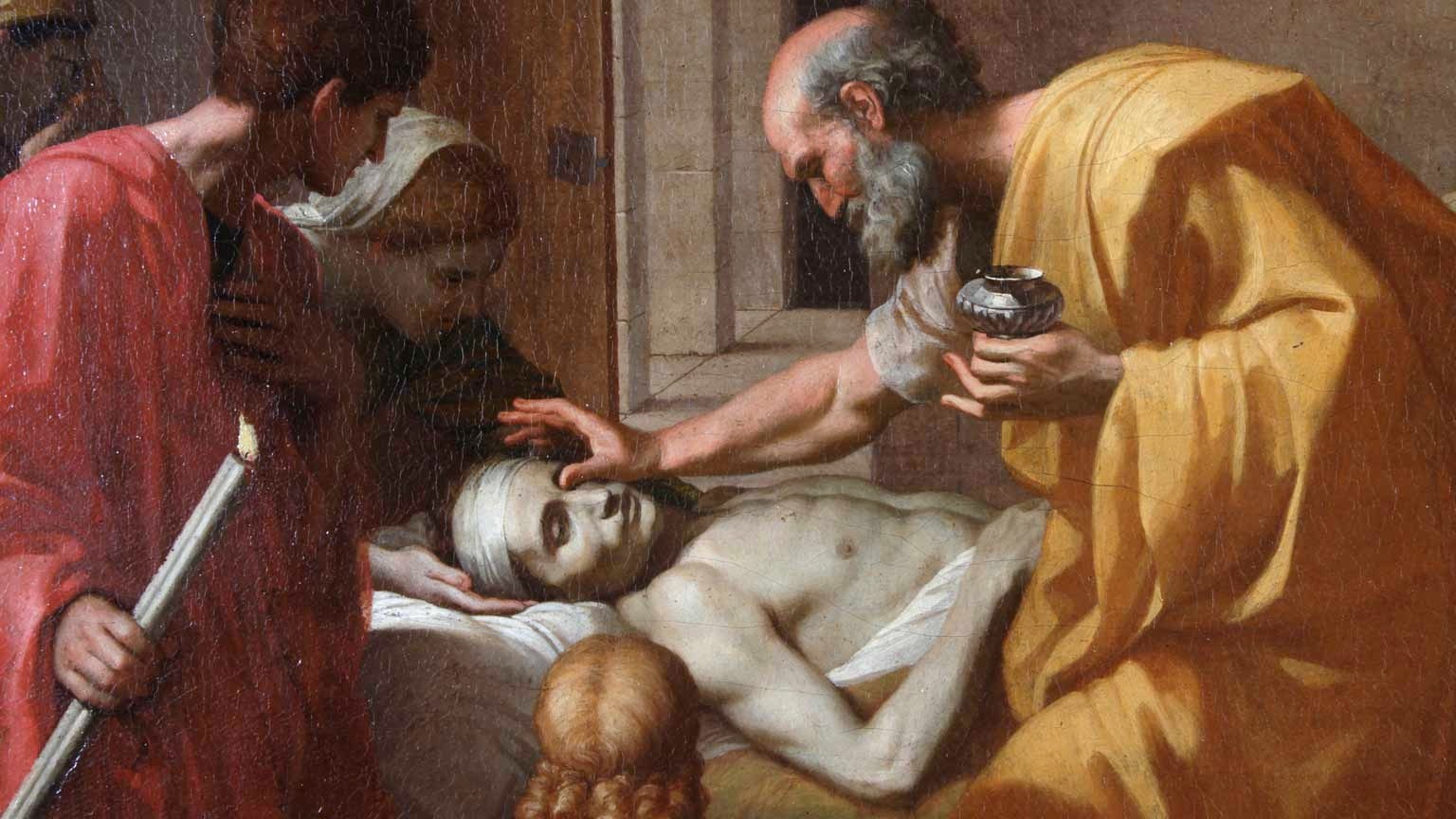
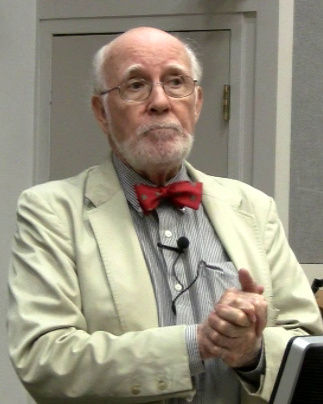
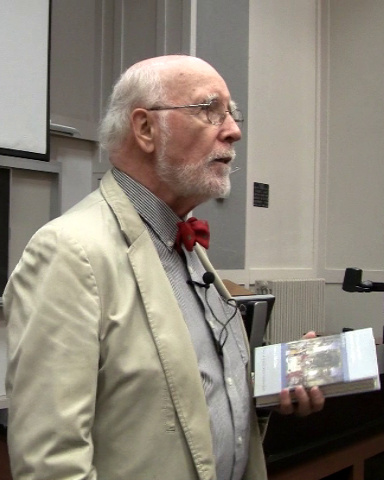
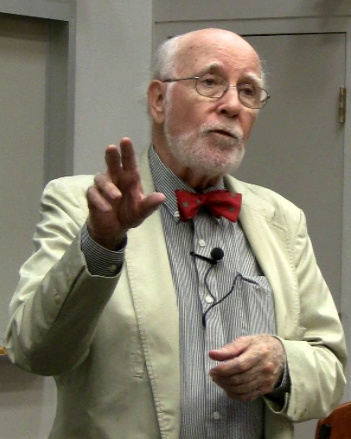
The great Summa Theologca is one of the most important works of theological wisdom ever written, a masterwork for the ages that continues to influence Western religion and philosophy. Despite its intellectual importance, many know far too little about the original purpose, the structure of the text, the historical reception over the past 700 years, and the continued relevance of the wisdom offered by the Summa Theologica. This public lecture by the eminent scholar of historical theology and Christian mysticism Bernard McGinn is free and open to all, so invite a friend and/or colleague.
November 5 (1:00pm): Reinhard Hütter (Catholic University of America), "The Development of Doctrine and Why it Matters: The Ongoing Relevance of John Henry Newman's Thought"
Cosponsored with The Thomistic Institute and St. Thomas Aquinas University Parish, Location: 401 Alderman Rd., St. Thomas Aquinas University Parish Hall.
140th Anniversary of Arcanum Divinae (1880)
Monday, December 21, 2020 (7:00-8:15pm) via Zoom
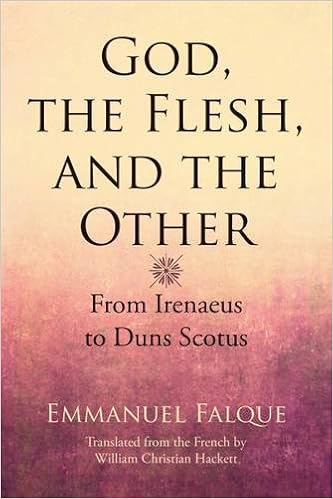
Emmanuel Falque
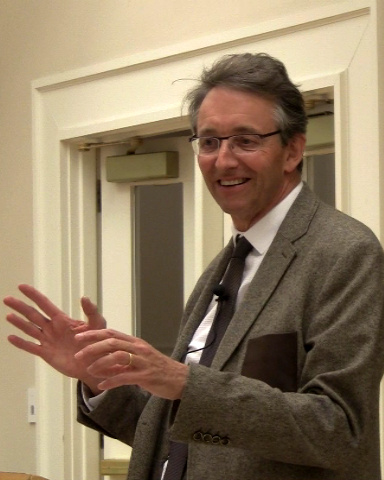 Christian theology largely has focused on asking the questions "What?" and "Why?," and in doing so has produced an immense body of creeds and doctrine. One significant question often bypassed is: "How?" Yet, as Prof. Falque's newly translated God, the Flesh, and the Other reveals, if we return to consider the Fathers and medieval theologians and their orders we find that they are deeply concerned with the question about how to create a manner of being in the Church and before God so that our lives are pleasing to God. For the mendicant orders, for example, preaching is not simply a work for the Dominicans; it is a way of being Christian. For the Franciscans, poverty is not so much what one does as how one lives in orientation to true friendship with God and creatures. All are invited to attend Prof. Falque's public lecture, which promises to open up these older Christian sources in fresh ways to expose their varied and dedicated answers to the central question: "How?"
Christian theology largely has focused on asking the questions "What?" and "Why?," and in doing so has produced an immense body of creeds and doctrine. One significant question often bypassed is: "How?" Yet, as Prof. Falque's newly translated God, the Flesh, and the Other reveals, if we return to consider the Fathers and medieval theologians and their orders we find that they are deeply concerned with the question about how to create a manner of being in the Church and before God so that our lives are pleasing to God. For the mendicant orders, for example, preaching is not simply a work for the Dominicans; it is a way of being Christian. For the Franciscans, poverty is not so much what one does as how one lives in orientation to true friendship with God and creatures. All are invited to attend Prof. Falque's public lecture, which promises to open up these older Christian sources in fresh ways to expose their varied and dedicated answers to the central question: "How?""The Dance of the Fertile Universe: Science and
the Search for God"
George V. Coyne, S.J.
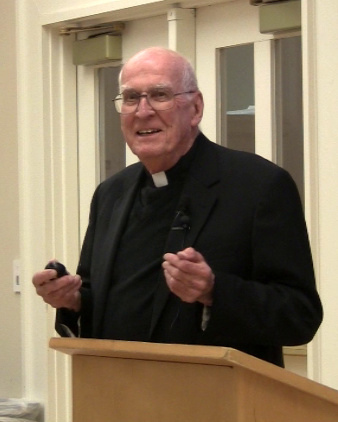 What is the modern scientific understanding of the development of the universe? We observe, in multiple ways, that it is dynamic and evolving, but did we come about by chance or by necessity? Beyond this elemental inquire, what are we to make of the massive scale and "fertility" of an observable universe that is open, still unfolding, and yet explainable by the order of constant chemical and physical properties and the unpredictability of random variations that not only allows for new material forms but, most unexpectedly, human consciousness by which matter becomes both aware of itself and, in certain respects, free to desire and to act beyond its immediate material constraints. Fr. George Coyne, former Director of the Vatican Observatory and now McDevitt Chair of Religious Philosophy at Lemoyne College, will take up these initial questions and then ask: What do answers to these questions reveal about the purposes and ultimate ends of modern science, as well as about the constant, older and widespread quest to understand the invisible, eternal God who, according to a wide spectrum of religious believers, created the order and dynamics of the universe?
What is the modern scientific understanding of the development of the universe? We observe, in multiple ways, that it is dynamic and evolving, but did we come about by chance or by necessity? Beyond this elemental inquire, what are we to make of the massive scale and "fertility" of an observable universe that is open, still unfolding, and yet explainable by the order of constant chemical and physical properties and the unpredictability of random variations that not only allows for new material forms but, most unexpectedly, human consciousness by which matter becomes both aware of itself and, in certain respects, free to desire and to act beyond its immediate material constraints. Fr. George Coyne, former Director of the Vatican Observatory and now McDevitt Chair of Religious Philosophy at Lemoyne College, will take up these initial questions and then ask: What do answers to these questions reveal about the purposes and ultimate ends of modern science, as well as about the constant, older and widespread quest to understand the invisible, eternal God who, according to a wide spectrum of religious believers, created the order and dynamics of the universe?"Speaking of the Other:
On the 50th Anniversary of Nostra Aetate (1965)"
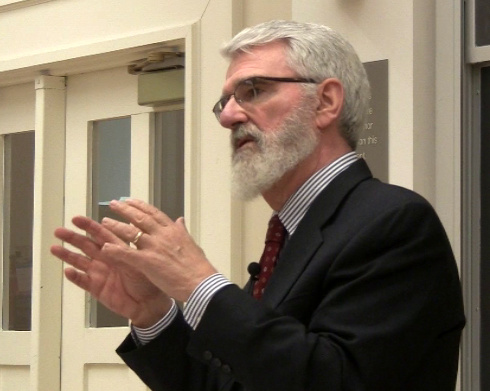 most important (and shortest!) works of the Second Vatican Council, and its immediate and enduring significance rests in its open and thoughtful discussion of the relationship of the Church to other religions, most especially our older Jewish brothers and sisters. Catholic University of America Professor of Theology Michael Root discussed the historical origins and text of Nostra Aetate and how its content continues to be influential for the Church and others 50 years later.
most important (and shortest!) works of the Second Vatican Council, and its immediate and enduring significance rests in its open and thoughtful discussion of the relationship of the Church to other religions, most especially our older Jewish brothers and sisters. Catholic University of America Professor of Theology Michael Root discussed the historical origins and text of Nostra Aetate and how its content continues to be influential for the Church and others 50 years later.
"God as Infinite"
Fr. David Tracy
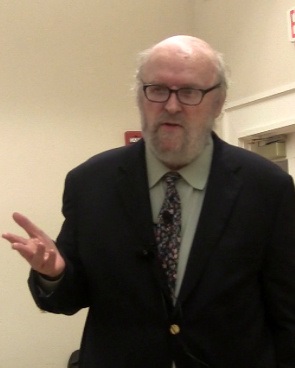
How ought we to think of God? Christians have long believed in the deeply radical idea of God as the Creator of all things visible and invisible, but is God also infinite and does it make a difference if He is?
One of the leading theologians of our time, University of Chicago Professor David Tracy discussed the various meanings of the 'Infinite' as they relate to our understanding of God. He began by drawing a distinction between the modern mathematical concept of infinity and what the 'infinite' meant among the ancients, especially what it meant philosophically for Plato, Aristotle, and Plotinus. For Plato, the ultimate grounding of Reality was what he referred to as "The Good." The Platonic idea of the Good transcends beyond Being--that is, beyond the limits of all existing things--and, therefore, it is beyond our capacities to grasp directly through our powers of reasoning. As a result, this ultimate Good was unknowable except only partially by the divinely-inspired philosopher or Truth-seeker. For Aristotle, infinity was a deep and especially unintelligible imperfection because it lacked the necessary boundary conditions associated with a distinct and, therefore, knowable form. For Plotinus, the ultimate grounding of Reality could be glimpsed and referred to as the all encompassing "Oneness" of Being. The "One" was both simple and an infinite overflowing Good, and yet it was an impersonal (and, therefore, unloving) Good. For early Christian thinkers, these Greek philosophical resources offered only a fragmented and an inadequate image of God as unknowable, inaccessible, unintellible, impersonal and unloving. Not surprisingly, early Christian descriptions of God did not commonly include the infinite as a Divine attribute. Yet as Prof. Tracy explained,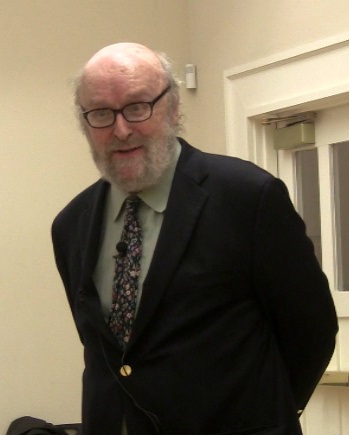
Wolfgang Koch
"Charlemagne, Adenauer, and the Crisis of European Union"
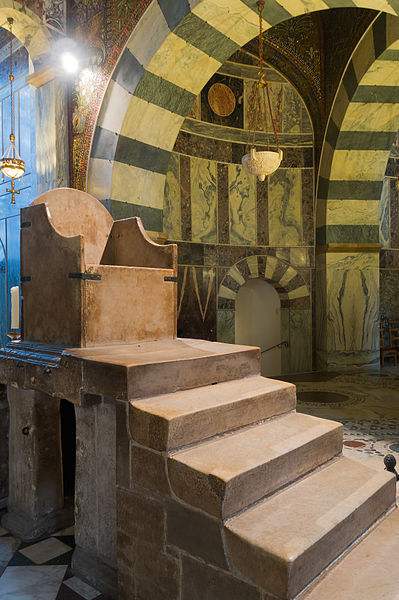 In rather uninspiring ways, some leaders still repeat largely hollowed out Enlightenment platitudes about secularized societies deliberately designed to free us from all dogma, including of course our most deeply held religious beliefs and practices. The results of social orders “freed” from moral foundations and of governance structures uncoupled from organic social boundaries are well-known except by those who casually or deceptively skip over the human tragedies of the 20th and now 21st centuries. But even the most fragmented and bankrupted social orders can be rebuilt, and visiting University of Bonn Prof. Wolfgang Koch will close our 2014-15 public lecture series with an account of how the religiously inspired leadership of Charlemagne in the 8th and 9th centuries and of Konrad Adenauer after the destruction of WWII aided the reconstruction of western Europe. All are invited to attend this public lecture, which will begin at 6:15pm in the Newcomb Hall Gallery Room at the University of Virginia. Nearby parking is available in the University Bookstore garage.
In rather uninspiring ways, some leaders still repeat largely hollowed out Enlightenment platitudes about secularized societies deliberately designed to free us from all dogma, including of course our most deeply held religious beliefs and practices. The results of social orders “freed” from moral foundations and of governance structures uncoupled from organic social boundaries are well-known except by those who casually or deceptively skip over the human tragedies of the 20th and now 21st centuries. But even the most fragmented and bankrupted social orders can be rebuilt, and visiting University of Bonn Prof. Wolfgang Koch will close our 2014-15 public lecture series with an account of how the religiously inspired leadership of Charlemagne in the 8th and 9th centuries and of Konrad Adenauer after the destruction of WWII aided the reconstruction of western Europe. All are invited to attend this public lecture, which will begin at 6:15pm in the Newcomb Hall Gallery Room at the University of Virginia. Nearby parking is available in the University Bookstore garage."St. Hildegard's Hexaemeron in Art and Music"
Margot Fassler


